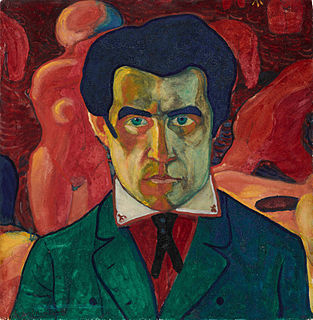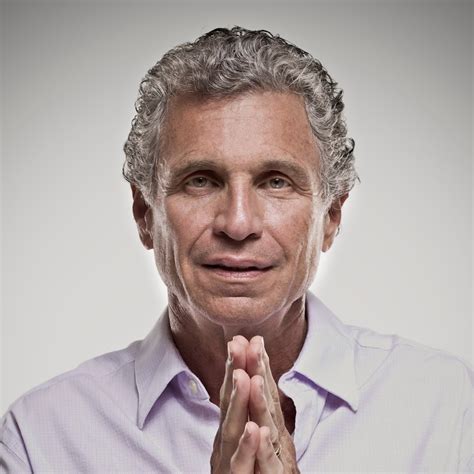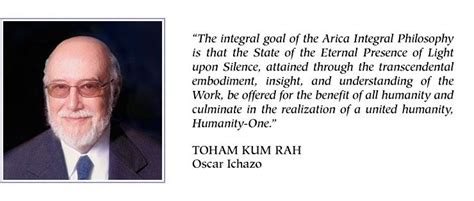Top 259 Objectivity Quotes & Sayings - Page 5
Explore popular Objectivity quotes.
Last updated on December 18, 2024.
Don't get seduced by your own stuff. Don't get high on your own supply. The hardest thing as a filmmaker is when you're watching a film that you've worked on for several years. You know every frame so intimately that holding lots of the objectivity of a new viewer who has just seen it for the first time is the hardest thing. Every aesthetic decision you make - and you make thousands of them every day, have to - in theory, must be done from you being a blank slate. You almost have to run a program, like a mind wipe, every time you watch the movie.
Within a year after I write a play I forget the experience of having written it. And I couldn't revise or rewrite it if I wanted to. Up until that point, I'm so involved with the experience of having written the play, and the nature of it, that I can't see what faults it might have. The only moment of clear objectivity that I can find is at the moment of critical heat - of self-critical heat when I'm actually writing.
I believe that one can and must hope for a sane society that furthers man's capacity to love his fellow men, to work and create, to develop his reason and his objectivity of a sense of himself that is based on the experience of his productive energy. I believe that one can and must hope for the collective regaining of a mental health that is characterized by the capacity to love and to create.
After that really, I spent the majority of the spring going to tons and tons of regional festivals throughout America. Every corner of the country, I took the movie to twenty film festivals or something to that extent. I've lost track. Probably done Q&As 40-50 times at this point. It's always hard to watch something I've made, but I've got a little more objectivity and kind of see the film as not just an extension of myself.
You have a certain objectivity, as a member of the audience, and you can come away maybe being provoked into a certain discourse or a certain arena of questioning, regarding how you would deal with things that your character has to deal with. Whereas when you're doing a film, once you start asking, "What would I do?," you're getting the distance greater between yourself and the character, or you're bringing the character to you, which I think is self-serving, in the wrong way. The idea is to bring yourself to the character.
When, in the year 1913, in my desperate attempt to free art from the ballast of objectivity, I took refuge in the square form and exhibited a picture which consisted of nothing more than a black square on a white field, the critics and, along with them, the public sighed: 'Everything which we loved is lost. We are in a desert .... Before us is nothing but a black square on a white background!'
For us, mind has nature for its premise, being nature's truth and for that reason its absolute prius. In this truth nature has vanished, and mind has resulted as the idea arrived at being-for-itself, the object of which, as well as the subject, is the concept. This identity is absolute negativity, for whereas in nature the concept has its perfect external objectivity, this its alienation has been superseded, and in this alienation the concept has become identical with itself. But it is this identity therefore, only in being a return out of nature.
When the waters of a lake are absolutely still, the lake reflects the trees, the sky, and everything around it perfectly. At the slightest breeze, with the smallest ripple in the waters, the lake reflects nothing but itself. To see another with clarity and objectivity, one first must master stillness. The slightest breeze of judgment or interpretation from the rational mind will create a ripple that shatters Awareness and returns us to ordinary perception.
It is clear, then, that the idea of a fixed method, or of a fixed theory of rationality, rests on too naive a view of man and his social surroundings. To those who look at the rich material provided by history, and who are not intent on impoverishing it in order to please their lower instincts, their craving for intellectual security in the form of clarity, precision, "objectivity," "truth," it will become clear that there is only one principle that can be defended under all circumstances and in all stages of human development. It is the principle: anything goes.
The main condition for the achievement of love is the overcoming of one's narcissism. The narcissistic orientation is one in which one experiences as real only that which exists within oneself, while the phenomena in the outside world have no reality in themselves, but are experienced only from the viewpoint of their being useful or dangerous to one. The opposite pole to narcissism is objectivity; it is the faculty to see other people and things as they are, objectively, and to be able to separate this objective picture from a picture which is formed by one's desires and fears.
I read and am liberated. I acquire objectivity. I cease being myself and so scattered. And what I read, instead of being like a nearly invisible suit that sometimes oppresses me, is the external world’s tremendous and remarkable clarity, the sun that sees everyone, the moon that splotches the still earth with shadows, the wide expanses that end in the sea, the blackly solid trees whose tops greenly wave, the steady peace of ponds on farms, the terraced slopes with their paths overgrown by grape-vines.
Objectivity is impossible and it is also undesirable. That is, if it were possible it would be undesirable, because if you have any kind of a social aim, if you think history should serve society in some way; should serve the progress of the human race; should serve justice in some way, then it requires that you make your selection on the basis of what you think will advance causes of humanity.
We have to distinguish between a man as he is in essence, and as he is in ego or personality. In essence, every person is perfect, fearless, and in a loving unity with the entire cosmos; there is no conflict within the person between head, heart, and stomach or between the person and others. Then something happens: the ego begins to develop, karma accumulates, there is a transition from objectivity to subjectivity; man falls from essence into personality.
Dialectical logic undoes the abstractions of formal logic and of transcendental philosophy, but it also denies the concreteness of immediate experience. To the extent to which this experience comes to rest with the things as they appear and happen to be, it is a limited and even false experience. It attains its truth if it has freed itself from the deceptive objectivity which conceals the factors behind the facts - that is, if it understands its world as a historical universe, in which the established facts are the work of the historical practice of man.
It may be said that myths give to the transcendent reality an immanent, this-worldly objectivity. Myths speak about gods and demons as powers on which man knows himself to be dependent, powers whose favors he needs, powers whose wrath he fears. Myths express the knowledge that man is not master of the world and his life, that the world within which he lives is full of riddles and mysteries and that human life also is full of riddles and mysteries.
To see ourselves as others see us can be eye-opening. To see others as sharing a nature with ourselves is the merest decency. But it is from the far more difficult achievement of seeing ourselves amongst others, as a local example of the forms human life has locally taken, a case among cases, a world among worlds, that the largeness of mind, without which objectivity is self-congratulation and tolerance a sham, comes.
Not only did I rediscover every experience of my life, I had to live each unfulfilled desire as well—as though they’d been fulfilled. I saw that what transpires in the mind is just as real as any flesh and blood occurrence. What had only been imagination in life, now became tangible, each fantasy a full reality. I lived them all—while, at the same time, standing to the side, a witness to their, often, intimate squalor. A witness cursed with total objectivity.
We had learned how to invent things, and the question of why we invent things receded in importance. The idea that if something could be done it should be done was born in the nineteenth century. And along with it, there developed a profound belief in all the principles through which invention succeeds: objectivity, efficiency, expertise, standardization, measurement, and progress. It also came to be believed that the engine of technological progress worked most efficiently when people are conceived of not as children of God or even as citizens but as consumers-that is to say, as markets.

















